Floor Screeding UK: During the renovation of your home in the UK, especially when dealing with damaged or uneven floors or converting a cellar or basement into a usable living area, you can rely on the expertise of a seasoned floor screeding company to enhance your home improvement project. The primary purpose of screeding is to create a seamless and level floor surface over a concrete sub-base, providing a sturdy foundation for your preferred top flooring material.
When longevity is a priority for your floors, floor screeding emerges as a crucial element in any renovation or construction endeavor. It ensures that your floors not only look pristine but also maintain their integrity over time, standing up to wear and tear. So, whether you're renovating existing spaces or embarking on new building projects, the contribution of floor screeding cannot be overstated in ensuring the lasting quality and appeal of your floors.
FLOOR SCREEDING CONTRACTORS UK
A reliable floor screeding company in UK will have all the know-how and experience to help you achieve a perfectly finished floor in whichever shape or size of room you're renovating. They will be able to advise you on the correct kind of screed your project requires, and how best to apply and install it.
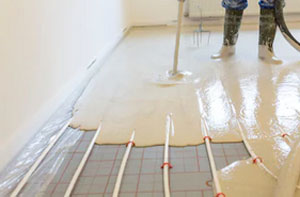
They will additionally assess if a structural engineer is required to make sure that any flex strength, load bearing and point loadings are followed as set out in the building regulations.
The expertise and training of a certified screeding specialist are invaluable assets for ensuring the success of your project and maximizing the lifespan of your floors. The world of screeding encompasses various techniques and materials, and the careful selection of the appropriate mix and installation method is paramount in achieving a high-quality, durable floor that fulfills its intended purpose. Entrusting your project to a qualified specialist guarantees that the correct choices are made throughout the process, from initial planning to the final finish. With their knowledge and skills, you can rest assured that your floor will not only meet your expectations but also stand the test of time, making it a worthwhile investment in the longevity and functionality of your space.
Prior to selecting a screeding contractor from those available in the UK, it's advisable to clarify the standard of finish referenced in their quotation, and to ensure you obtain several quotes for comparison. The Surface Regularity (SR) finish grade is a critical metric in evaluating proposals from UK floor screeding contractors. SR1 represents the highest level of finish, offering a perfectly even and flat floor surface. While SR2 and SR3 finishes might appear more affordable initially, they do not provide the same assurance of flawlessness. Opting for a lower SR grade could result in imperfections in the screed, such as flat spots, indentations, or ridges, which can subsequently create complications when installing flooring. Therefore, understanding the implications of different SR finish levels is essential in making an informed decision and ensuring the quality and longevity of your flooring.
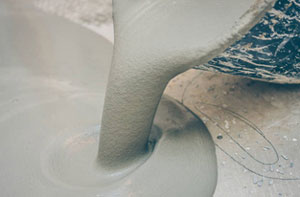
Any floor screeding company operating within the UK is obliged to adhere to the stringent rules and regulations set forth in the British Standards BS8204. Moreover, it is imperative that they possess accreditations from the manufacturers of specialist screeding materials, such as Gypsol, Flowcrete, Cemfloor, among others, to validate their expertise, proficiency, and commitment to safe working practices. Holding such accreditations is a testament to the contractor's comprehensive training and successful assessment in the application of these specific products. This not only ensures that they are fully equipped to handle these materials safely but also guarantees that they can maintain a high standard of quality across all facets of their installation services. Such credentials highlight a contractor's capability to execute work that meets both industry standards and client expectations, ensuring peace of mind and satisfaction for all stakeholders involved.
Commercial screeders in UK will probably tackle larger floor screeding projects in hotels, hospitals, schools, factories, warehouses and shops.
TYPES OF SCREED
Standard Screeds - Widely used in domestic projects where the mixture of sand and cement is good for standard floor traffic use. Five parts sand to one part cement is the usual mix for standard screed. Once its been laid this 5:1 ratio dries at a rate of one millimetre each day.
Fibre Reinforced Screed - The preferred option where underfloor heating is being installed in domestic properties in UK. The improved flexibility and strength offered by the special fibres in the screed help protect the floor from cracking and shrinkage due to heat. The screed will set hard at a rate of 1mm/day.
Polymer Screeds - An extremely high strength solution where a reduced thickness is necessary. Owing to their different chemical compositions, polymer screeds have varying setting times which you can verify by reading manufacturer's product guidelines.
Industrial and Heavy Duty Screed - Designed for maximum strength and durability in places where traffic is high or specific loading of the floor base is required.
Advanced Drying and Fast Drying Screeds - As the name would suggest, these screeds dry at a quicker rate and allow you to use the floor area much sooner. They are normally a fibre reinforced kind of screed that dries out at a rate of between 3-7mm/day per day and are employed in time critical flooring projects.
Self-Levelling or Liquid Screeds - Used to provide a high quality finish, especially where SR1 levels are necessary, by a cement and latex material. Largely used to improve a poor substrate level or damaged floor in order to lay a brand new flooring surface, such as tiles over it. These can be as little as one millimetre in depth, and due to the latex polymers, will still provide high strength.
SCREEDING PREPARATION AND INSTALLATION
Screeding installers will have to carefully prepare all areas before any other work in order to ensure a hard wearing and quality screed flooring. The existing floor surfaces should be thoroughly cleaned to eliminate any paint, oil, grease and debris which might affect the adhesion of the screed.
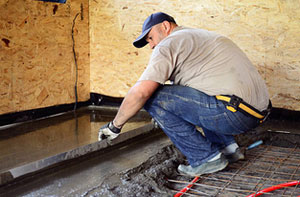
Any cleaning chemicals which are used during this phase should leave no residues, and the floor surface must be allowed to dry by itself naturally. At this point cracks should be repaired because these can easily travel up through your newly laid screed and be reflected in the finished surface. A competent UK screeding contractor will take note of these issues during a site survey and make certain that all preparations are completed before applying the next steps in the screeding process.
To protect the screeding layer and flooring materials from dampness rising up from the ground, a DPM (damp proof membrane) will have to be laid. The DPM is made out of thick polythene and different layers might be used to act as a moisture barrier and air insulating layer for the screeding.
If your property is located in a place where radon gas is found an extra barrier layer is required to prevent radon gas from entering. This can be as simple as an air-tight membrane, or in more serious instances an extraction and ventilation system will be installed underneath the screeding to extract any inflow of air and gas from the ground.
Once these stages have been completed the screeders will put on a sealer or primer to the prepared floor base. Primers assist with the bonding process and are specialist applications matched to the sort of screed that's being used. Equipment such as airless sprays will usually be used to apply a sealant or primer, by certified screeding companies in UK observing the manufacturer's guidelines.
This is the time that underfloor heating can be laid out in the correct manner and installed. The heating pipes and cabling are firmly mounted on insulation panels to stop any movement and ensure that they're laid in the correct position. Warmth is spread evenly across a floor area in an expertly installed underfloor heating system, and in conjunction with it being an effective method of heating, it's an excellent choice for many UK home restoration projects.
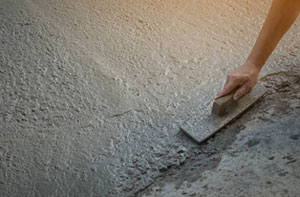
If you are not fitting underfloor heating the screed can now be mixed and prepared on site and poured. Your use of the room will assist the screeding contractor on which sort of screed is best for your needs. Be aware that even quick drying screeds have a minimum of twenty four hours before you can walk over any screeded surfaces and at least 3 days before any flooring can be applied. This timescale is longer for standard and heavy duty screeds and the manufacture's product guidelines must be followed to the letter to achieve the optimal finish and durability of the floor.
Once the screed has set it can be checked for quality to determine its SR level. The test involves using a 2 mtr long straight-edge laid on the floor surface and any variations from true are measured.
- SR1 - SR1 is the best quality and allows only 3 millimetres of disparity from the straight-edge.
- SR2 - SR2 is the classification for normal standard floors in industrial and commercial projects and can deviate from the straight-edge by as much as 5 millimetres.
- SR3 - If the deviation is 10 millimetres or less the quality of the screeding is classified as SR3 and is highly suitable for utility and garage areas.
If your screeding has been laid with particular load bearing requirements in mind then a structural engineer is going to be required to conduct these soundness tests. The assessment will make sure that your newly laid screed surface is viable for the load point requirements specified in the original site survey. This can include what is known as a drop hammer test which assesses various aspects of the flexibility and strength of the screed. Any screed floor that's got point load requirements must be okayed by a qualified structural engineer heeding the British Standards BS8204 regulations. (Tags: Floor Screeding UK, Floor Screed UK, Floor Screeding Services UK, Screeding UK).
You will be able to find professional floor screeders in these UK locations: Great Notley, Hilperton, West Wickham, Handsacre, Cinderford, Ilminster, Brixton, Woburn Sands, Sheringham, Wrecclesham, Lees, Shirebrook, Linton, Cainscross, Benson, Polesworth, Abingdon, Studley, Westminster, Selsey, Croxley Green, Somersham, Bearsden, Nailsworth, Warlingham, Bermondsey, Redlynch, Heywood, Limavady, Saxilby, Purbrook, Chadwell St Mary, Bishop's Castle, Cheadle, Salcombe, Murton, Worksop, Freshwater, St Leonards, Gnosall, Cleveleys, Thornton Heath, Weaverham, Bearsted, Bulwell, Warsash, Hendon, Edwinstowe, Bayston Hill, Street, Chigwell, Ludgershall, Rowlands Castle, Swanage, Ashtead, Potters Bar, Fazeley, Larkhall, Chalfont St Peter.
Latex Floor Screed UK
When the characteristics of your floor's surface means that a level of flexibility is required, it may be an advantage to use a latex self-levelling screeding, as opposed to one with an unyielding finish. Typically coming in 2 parts, latex screeds comprise a cement-based compound, and a liquid latex additive. The liquid latex part takes the place of the water which is used in standard screeds, meaning that it's more flexible and quicker drying.
This latex product is used for levelling sub-floors prior to the installation of the final decorative covering. Producing a durable, smooth surface that is ideal for the application of adhesives, this is is suitable for use on subfloors of concrete, quarry tiles, asphalt, sand/cement and wood. If your sub-floor has a bit of movement in it, this type of latex screed will provide a crack-free, flexible finish, on which your chosen floor coverings can sit.
When using a "floating" screed, i.e. when screeding is being laid on the top of underfloor heating, thicknesses of 50 to 65 millimetres may be necessary, and latex flooring screeds are not a suitable choice in this case.
Damp-Proof Membranes
Damp-proof membranes (DPMs) are an essential part of construction and renovation projects, helping to protect buildings from the damaging effects of moisture. Installed as a barrier between the ground and the flooring or walls, they prevent rising damp from seeping into a structure, which can lead to issues like mould, structural decay, and unhealthy indoor environments. Whether you're laying a new floor or renovating an older property, incorporating a DPM is a straightforward and effective way to ensure long-term protection against damp.
One of the key benefits of damp-proof membranes is their versatility. They can be used in a range of settings, from residential homes to commercial buildings, and are suitable for both new builds and refurbishments. Modern DPMs are often made from tough, flexible plastic sheets that are easy to install and provide excellent resistance to moisture. They're also available in various thicknesses, allowing you to choose a membrane that suits the specific requirements of your project. Paired with proper installation, a DPM can make all the difference in maintaining a dry and stable building environment.
Investing in a damp-proof membrane is a smart choice for anyone looking to protect their property. Not only does it safeguard against the costly repairs associated with damp, but it also contributes to a healthier living or working space. By preventing moisture intrusion, a DPM helps to create a strong, stable foundation for your floors and walls, ensuring your property remains in top condition for years to come.
Get damp-proof membranes installed in these UK areas: Tottenham, Raunds, Branston, Boxley, Wadebridge, Bradninch, Shipley, Fleckney, Milngavie, Sawston, North Walsham, Shepperton, Colliers Wood, Freckleton, Shipston-on-Stour, Ore, Groby, Stockton Heath, Chester-le-Street, Chalford, Methil, Waltham, Bewdley, Prudhoe, Darlaston, Lingfield, Nelson, Downton, Waltham Abbey, Grangemouth, Dalry, Barrow upon Soar, Castle Cary, Lyme Regis, Shaw, Wareham, Linlithgow, Capel St Mary, Wigton, Yeadon, Brixham, Hamble-le-Rice, Hurstpierpoint, Ponteland, Dunblane, Wednesfield, Penketh, Peckham, Pitsea, Long Ashton, Pinchbeck, Chessington, Culcheth, Saltdean, Whitfield, How Wood, Witham, Lytchett Matravers, Goldthorpe.
Related Tasks

There are a wide range of tasks that can be completed by your local UK floor screeding company including floor screeding tools UK, floor levelling, screeding advice, floor renovation UK, rapid strength floor screeds UK, floor insulation, fibre reinforced screeding, floor screeding, liquid screeds, conservatory floor screeding in UK, self-levelling screeding, polished screeding UK, industrial screeding, acoustic flooring, concrete pumping, floor screed repairs, domestic floor screeding, waterproof screeding UK, and more floor screeding tasks.
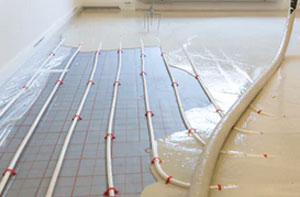 Floor Screeding UK
Floor Screeding UK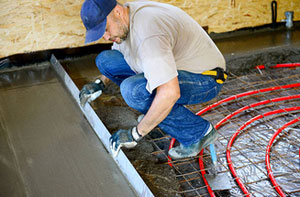 Screeding Near Me
Screeding Near Me Floor Screeders UK
Floor Screeders UKGet screeding done in these UK places: Great Cornard, Braunton, Drayton, Denholme, Stainforth, Kingsnorth, Ampthill, Padiham, Felpham, Grappenhall, Dalgety Bay, Troon, Chineham, Battle, Hebburn, Ruislip, Killamarsh, Byfleet, Newbold Verdon, Amble, Telscombe, Banks, Godmanchester, Harlesden, Spennymoor, Epworth, Ravenshead, Burnham, Inverkeithing, Henley-on-Thames, Droylsden, Langport, Thaxted, Wendover, Bedlington, Fair Oak, Blackrod, Lanchester, Pembury, Easington, Seasalter, Higham Ferrers, Woolwich, Fulwell, Wombwell, Stanley, Verwood, Bruton, Thorpe St Andrew, Aylsham, Tenbury Wells, Coggeshall, Strood, Weedon Bec, Windlesham, Tayport, Clowne, Stokenchurch, Conisbrough.
More: Floor Screeding, Floor Screeders, Floor Levelling Services, Polished Screeding, Screeding Services, Screeding Contractors, Screeding Services, Screeding Services, Floor Screeders, Commercial Screeding, Screed Floors, Residential Screeding, Flooring Contractors, Screeding, Screed Reinforcement, Flooring Contractors, Screeding Contractors, Screeding Specialists, Floor Screeding, Floor Levelling, Screeding Contractors, Decorative Screeding, Polished Screeding, Screeding, Screed Reinforcement, Floor Screeding, Screed Floors, Floor Levelling Services, Self-Levelling Screeds, Screed Floors, Polished Screeding, Screed Reinforcement, Floor Screeding, Floor Levelling, Flooring Contractors, Screeding Companies, Commercial Screeding, Cheap Floor Screeding, Cheap Screeding, Coloured Screeding, Flooring Contractors, Screeding Services, Cheap Floor Screeding, Screed Flooring, Floor Screeding, Screeding Contractors, Polished Screeding, Screed Flooring, Screeding, Residential Screeding.



